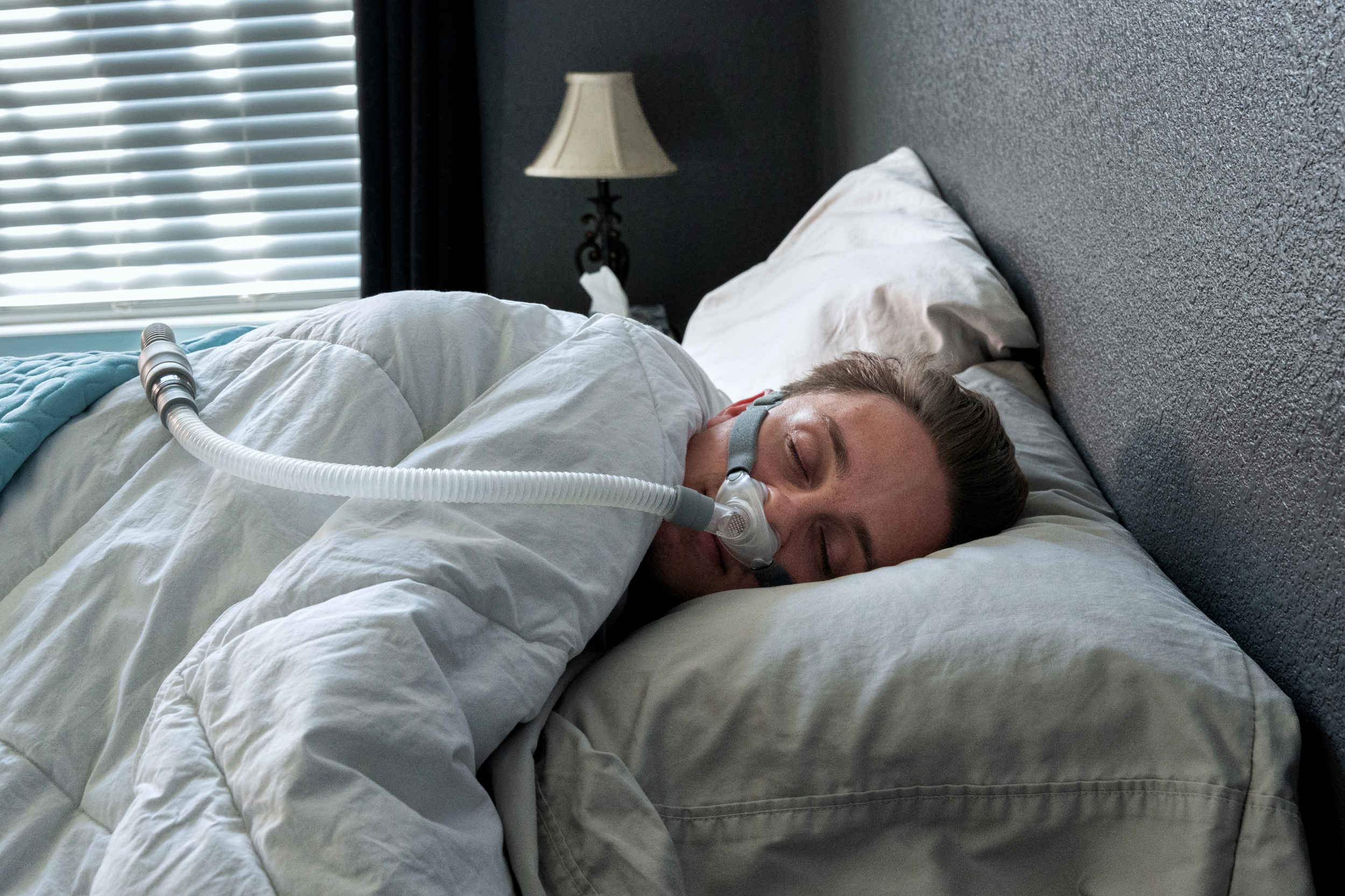
Adjusting to Sleeping with PAP
Adjusting to PAP therapy can be a journey, but it can lead to improved sleep and renewed energy.
Find Comfort with CPAP.
Adjusting to a CPAP machine can be daunting, and it’s normal to feel anxious about this change. Many people share these feelings, but remember, you’re not alone. With the right support and strategies, you can learn to embrace CPAP as a pathway to better sleep and improved well-being.
How Cognitive Behavioral Therapy (CBT) Can Help
As a sleep therapy specialist, I understand how challenging it can be to adjust to CPAP (Continuous Positive Airway Pressure) therapy after being diagnosed with obstructive sleep apnea (OSA). This transition can feel overwhelming, and many people struggle with the mask and the sensation of airflow. You don’t have to navigate this journey alone. I use cognitive-behavioral approaches to help individuals like you adapt to CPAP therapy and improve overall sleep health. Here is how they can help you:
Understanding the Challenge:
Obstructive sleep apnea leads to blocked airways during sleep, causing interrupted breathing and poor sleep quality. While CPAP therapy is an effective treatment, many people find it difficult to get used to the mask and the sensation of airflow. It’s completely natural to feel anxious or frustrated during this adjustment.
Managing CPAP-Related Anxiety:
It’s common to experience feelings of anxiety or claustrophobia with a CPAP machine. Together, we’ll work through these feelings using cognitive-behavioral techniques. By incorporating relaxation training and cognitive restructuring, you can build comfort with the device and develop a positive association with your therapy.
Gradual Adaptation Techniques:
Adjusting to CPAP is a process that takes time. I’ll guide you through gradual exposure techniques to help you get accustomed to wearing the mask and airflow. We can start with short periods and slowly increase usage, ensuring that this transition feels manageable.
Developing Consistent Habits:
Creating a consistent routine is key to successful CPAP therapy. I’ll help you integrate CPAP use into your nightly ritual, making it easier to maintain regular use and fully benefit from your therapy.
Addressing Behavioral and Environmental Factors:
Your sleep environment and daily habits play a significant role in how well you adapt to CPAP therapy. Together, we’ll assess and optimize factors like sleep hygiene and lifestyle habits to enhance your overall sleep quality and adherence.
Enhancing Motivation and Adherence:
Staying motivated can be tough, but we’ll use behavioral strategies to boost your commitment to CPAP therapy. By setting achievable goals and tracking your progress, you’ll remain focused and positive throughout your journey.
Why Choose Behavioral Approaches?
Behavioral approaches effectively address the psychological and practical barriers to adapting to CPAP therapy. Our methods are tailored to your unique needs, helping you overcome specific challenges and improve your long-term adherence to treatment.
At Rhythm Wellness, my commitment is to guide you through the challenges of CPAP therapy with understanding and support. You deserve peaceful nights, and with the right strategies and encouragement, we can navigate this journey together for a more restful and fulfilling sleep experience.
To learn more about CBT-I click here.



